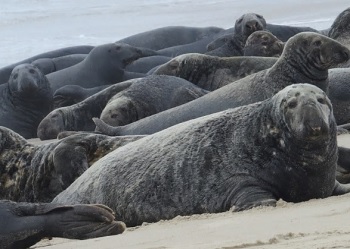Tag Archives: CETA
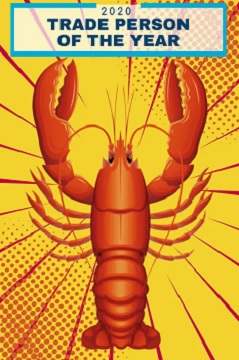
Lobsters Are A Prawn In The Trade Wars
American lobster and lobster fishers got caught in a trade war being fought on multiple fronts. The United States is battling China on one major front and the European Union (EU) on another, but as is typical in trade wars, it’s lobster production in another country that’s winning the war. In this case, Canada. If that weren’t enough, tariffs are the root cause of the trade war, but not in the way you might think. China’s tariffs on U.S. lobsters are in retaliation for President Trump’s China tariffs over intellectual property. The EU didn’t raise its tariffs on U.S. lobster, but rather lowered them on Canadian ones as part of their free trade agreement. In other words, U.S. lobsters were never meant to be the target of either Chinese or EU,,, How the lobster trade war started isn’t nearly as interesting as the efforts to stop it. >click to read< 10:28

EU humiliation: Brutal reality of Canada deal without UK exposed by Brexiteers
The EU’s celebrated trade deal with Canada has been laid bare after a pro-Brexit organization exposed Ottawa has faced a worsened situation since the UK historically voted to leave the bloc. Facts4EU claims Canada’s trade deficit since signing its joint pact in 2016 with Brussels has worsened by 27 percent, to around -€17.5billion (-£16bn), while the deal will be severely hampered when the UK is finally removed from the bloc. When Canadian Prime Minister Justin Trudeau agreed to the Comprehensive Economic and Trade Agreement (CETA), the trade deficit was at -€13billion (-£11.6bn), Facts4EU say. The organization say the deal with the EU will become “a whole lot less” as Canada sold 43 percent of its goods to the UK, and that when Brexit is concluded it will not enjoy such high levels of trade. >click to read< 12:35
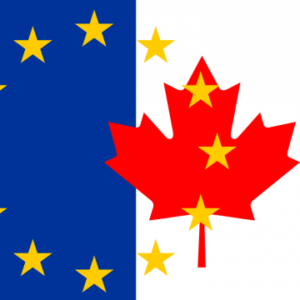
Trade minister says she’ll keep eye on U.S. probe of Canadian lobster industry
The Canadian industry gained most of the Chinese market that the Americans lost after China slapped a 35 per cent tariff on U.S. lobster exports. Canada also saw its lobster exports grow in Europe after it signed the Comprehensive Economic and Trade Agreement, or CETA, with the European Union, giving it a tariff advantage over its U.S. competitors. The Trump administration, however, has recently signed an agreement with China that removes the 35 per cent tariff. And a separate deal with Europe also removed tariffs on American lobsters that had provided the Canadian industry an advantage. Executive Director Geoff Irvine (Lobster Council of Canada) said Monday the lobster industries of Canada and the United States are now back on an even playing field. >click to read< 07:17

“We’re not sure what it means,” – Trump turns an eye on Canadian lobster, launches Trade Investigation
On Aug. 24, the United States International Trade Commission announced it will investigate the possible negative effects of the Canada-Europe Trade Agreement (CETA) on American lobster exports. The investigation was requested by U.S. Trade Representative Robert Lighthizer. The investigation will also examine tariff treatment of Canadian lobster in the United Kingdom, China and other countries. “We’re not sure what it means,” said Geoff Irvine, executive director of the Lobster Council of Canada. “We’re studying it. The government of Canada is studying it. Now we’re talking to our colleagues in the U.S. and we’re trying to figure out how best to manage it from the Canadian side.” >click to read< 08:36

USITC to launch lobster investigation – “Lobsters: Effects of the CETA Agreement on the U.S. Industry”
The U.S. International Trade Commission (USITC) on Monday announced an investigation into possible negative effects of the Canada-European Union Comprehensive Economic and Trade Agreement (CETA) on the U.S. lobster industry and the volume of U.S. exports of lobster. The investigation, “Lobsters: Effects of the Canada-EU Trade Agreement on the U.S. Industry,” was requested by U.S. Trade Representative Robert Lighthizer in a letter on July 29. The USITC, an independent, nonpartisan, factfinding federal agency, said it will: Provide an overview of the U.S. and Canadian lobster industries,,, >click to read< 10:33
Search Results for CETA going back to 2012 – >click here<
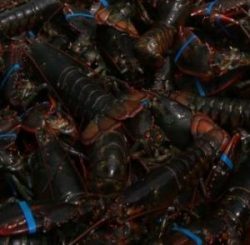
Coronavirus: Despite no shipments to China, Nova Scotia seafood business is thriving
“Our first thoughts are with the people in Asia and China and the rest of the world, Iran, Italy and other countries that are affected by the virus,” says Leo Muise, Executive Director of the Nova Scotia Seafood Alliance. Shipments to Asia have slowed almost to a halt since mid-January when the virus began to spread. “Geo-political events that happen all over this world have a great effect on this industry. Three years ago when the U.S. government and the Chinese government got into that trade war, and China put retaliatory tariffs on the U.S., that’s when our sales to China started to boom because we have a financial advantage there,” >click to read< 10:53

Two years after CETA took effect, fisheries minister says Tory exemptions devalued the industry
In 2013, negotiations between Canada and the European Union over the Comprehensive Economic and Trade Agreement, or CETA, included talks on how Newfoundland and Labrador might be compensated for losses once the deal was implemented. The provincial PC government of the time insisted on a $400-million compensation program, noted Byrne. “I can certainly understand why they’d take that position,” Byrne said. But that fund never materialized, >click to read<10:56
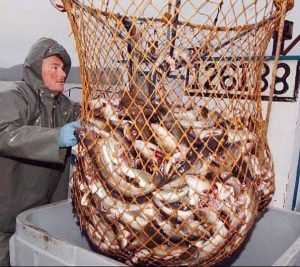
CETA and Atlantic Canada’s fishery: From international trade to the outport stage
As trade grows between Canada and the European Union (EU), the results of this international partnership are washing ashore in fishing outports across the province. The fishery, which was historically the economic foundation of Newfoundland and Labrador, is today an industry continuously beset by cuts, declines and uncertainties. But in recent years, words of hope and rebound are growing in the public discourse. With tariffs declining and opportunities arising, the Comprehensive Economic and Trade Agreement (CETA) between Canada and the EU has the potential to play a key role in the livelihoods of harvesters and processors. >click to read<11:12

CETA: U.S. lobster industry alarmed as European deal gives Canadians a ‘huge’ advantage
Canada may be getting beaten up at the NAFTA talks in Washington, but off the east coast, it is enjoying something of a free-trade coup. This country’s trade accord with Europe has given the Canadian lobster industry a sudden leg-up on American competitors in the lucrative market, adding to alarm in the U.S. lobster world over retaliatory tariffs from China. As European duties start to come off the crustaceans, Canada is gaining a price edge ranging from six to 20 per cent over shellfish from the United States, prompting the American industry and a prominent member of Congress to press the U.S. government for help. >click to read<
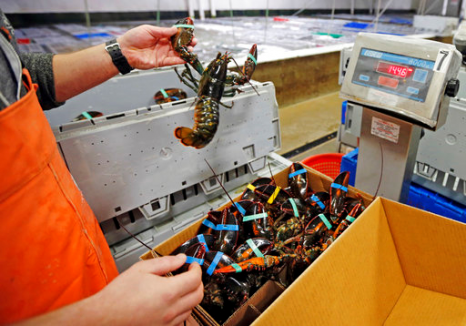
Christmas tail: Europe deal could slow yuletide lobster biz
A trade deal between Canada and the European Union could amount to a lump of coal for the U.S. at Christmastime. The Christmas season is typically a busy time of year for American seafood exporters, as the type of lobster that is native to North America is popular in some European countries around the holiday. But Canada and the EU brokered a deal this year that gets rid of tariffs on Canadian lobster exports to the 28-nation bloc. Canada, the world’s other major lobstering nation, is now at an economic advantage over the U.S. Members of the U.S. lobster industry, which is based in New England, said exports to Europe have been pretty typical this year, but they’re worried about the future. click here to read the story 11:10

Maine lobster industry braces for impact of Canada’s sweet EU deal
More than 1,700 fishing boats raced out of Nova Scotia ports before first light Tuesday morning on what is known as Dumping Day – the opening of Canada’s biggest and most lucrative lobster fishery. It also signals the start of when their U.S. rivals in Maine and Massachusetts will begin to feel the sting of the 8 percent tariff differential created when Canada signed a new trade deal with Europe, leaving American lobstermen to wonder just how much of that valuable market they are about to lose. click here to read the story 07:51
Record high prices, strong demand for Canadian snow crab bodes well for Alaska
 The top executives of Royal Greenland and Ocean Choice International (OCI) noted demand has remained strong for Canadian snow crab in 2017, despite record-high prices caused by reduced supply from the Newfoundland and Labrador fishery. In April, Canada’s Department of Fisheries and Oceans (DFO) cut the 2017/2018 total allowable catch (TAC) for the Newfoundland and Labrador fishery 22% year-on-year — to 35,419 metric tons — causing prices to increase to record levels of over $8 per pound (for 5-8 ounce size crab) during the season, sources said. The Newfoundland season started on April 6 and finished between May and August, depending on the area. click here to read the story 18:38
The top executives of Royal Greenland and Ocean Choice International (OCI) noted demand has remained strong for Canadian snow crab in 2017, despite record-high prices caused by reduced supply from the Newfoundland and Labrador fishery. In April, Canada’s Department of Fisheries and Oceans (DFO) cut the 2017/2018 total allowable catch (TAC) for the Newfoundland and Labrador fishery 22% year-on-year — to 35,419 metric tons — causing prices to increase to record levels of over $8 per pound (for 5-8 ounce size crab) during the season, sources said. The Newfoundland season started on April 6 and finished between May and August, depending on the area. click here to read the story 18:38
Newfoundland and Labrador – What did we get for giving up MPRs under CETA?
 The Canada-European Union Comprehensive Economic and Trade Agreement (CETA) is the trade deal Canada just signed with the European Union, and the signature for Canada was Justin Trudeau. Minimum processing requirements (MPRs) reflect an established right of a province to impose minimum processing requirements for fish landed at our ports. In the past, exemptions have been approved for the export of unprocessed fish when the market required it and/or when processing was not viable. No other province in Atlantic Canada had used MPRs for fish over the past number of years, except Newfoundland and Labrador. click here to read the op-ed by Keith Hutchings10:10
The Canada-European Union Comprehensive Economic and Trade Agreement (CETA) is the trade deal Canada just signed with the European Union, and the signature for Canada was Justin Trudeau. Minimum processing requirements (MPRs) reflect an established right of a province to impose minimum processing requirements for fish landed at our ports. In the past, exemptions have been approved for the export of unprocessed fish when the market required it and/or when processing was not viable. No other province in Atlantic Canada had used MPRs for fish over the past number of years, except Newfoundland and Labrador. click here to read the op-ed by Keith Hutchings10:10

One plant is processing more shrimp thanks to the elimination of tariffs under European free trade deal
The new free trade deal with Europe has only been in effect for a few days but one seafood processor in Newfoundland and Labrador says it’s already meant more work. Ocean Choice International has extended work at the Port au Choix plant.,, On Sept. 21 the Comprehensive Economic and Trade Agreement, or CETA, came into effect. It dropped tariffs on 96 per cent of the Canadian seafood sold into Europe.,, As part of the tradeoff for the elimination of tariffs, Newfoundland and Labrador agreed to drop minimum processing requirements. They required fish caught off the province to be processed there. click here to read the story 12:54
CETA: Canada-European Union pact worries US lobster industry
 Members of the U.S. seafood industry are fearful that Canada’s approval of a new trade deal with the European Union will cause big problems for the American lobster business, just as the catch is hitting historic highs. The Canada-European Union Comprehensive Economic and Trade Agreement Implementation Act, or CETA, cleared its final hurdle in the Parliament of Canada on Tuesday. The deal gets rid of tariffs on Canadian lobster exports to the 28-nation bloc, putting Canada at a huge advantage over the U.S. click here to read the story 11:06
Members of the U.S. seafood industry are fearful that Canada’s approval of a new trade deal with the European Union will cause big problems for the American lobster business, just as the catch is hitting historic highs. The Canada-European Union Comprehensive Economic and Trade Agreement Implementation Act, or CETA, cleared its final hurdle in the Parliament of Canada on Tuesday. The deal gets rid of tariffs on Canadian lobster exports to the 28-nation bloc, putting Canada at a huge advantage over the U.S. click here to read the story 11:06
CETA – Canada-European Union pact worries US lobster industry
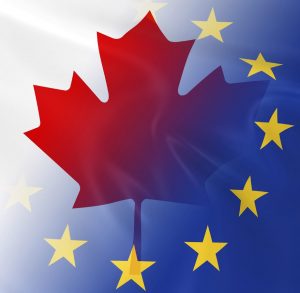 Members of the U.S. seafood industry are fearful that Canada’s approval of a new trade deal with the European Union will cause big problems for the American lobster business, just as the catch is hitting historic highs. The Canada-European Union Comprehensive Economic and Trade Agreement Implementation Act, or CETA, cleared its final hurdle in the Parliament of Canada on Tuesday. The deal gets rid of tariffs on Canadian lobster exports to the 28-nation bloc, putting Canada at a huge advantage over the U.S.,,, Seafood exporters and lobster industry members like Dave Madden, owner of exporter Lobster Trap in Bourne, Massachusetts, said they fear loss of money and jobs in the U.S. under the new rules. He ships about 4.5 million pounds of lobsters to countries such as Italy, France and Spain per year. click here to read the story 19:27
Members of the U.S. seafood industry are fearful that Canada’s approval of a new trade deal with the European Union will cause big problems for the American lobster business, just as the catch is hitting historic highs. The Canada-European Union Comprehensive Economic and Trade Agreement Implementation Act, or CETA, cleared its final hurdle in the Parliament of Canada on Tuesday. The deal gets rid of tariffs on Canadian lobster exports to the 28-nation bloc, putting Canada at a huge advantage over the U.S.,,, Seafood exporters and lobster industry members like Dave Madden, owner of exporter Lobster Trap in Bourne, Massachusetts, said they fear loss of money and jobs in the U.S. under the new rules. He ships about 4.5 million pounds of lobsters to countries such as Italy, France and Spain per year. click here to read the story 19:27

CETA Deal could be in force for opening day of lobster season on P.E.I.
Canada’s free trade deal with Europe is only steps away from being ratified in Ottawa, and the Lobster Council of Canada is telling exporters to get ready. When CETA is passed an eight per cent tariffs on live lobster shipped to Europe will immediately disappear, and could happen as soon as May 1, the day the spring lobster season on P.E.I. opens. Lobster industry officials in Maine are worried that the disappearance of those tariffs, while tariffs on U.S. lobster remain, could eat into their exports. “For the lobster sector it will mean tariff free access to 27 countries in Europe over the next number of years,” said Geoff Irvine, executive director of the Lobster Council of Canada. Read the rest here 12:32
CETA: Liberals’ passivity a detriment to our fishery
 The Comprehensive Economic Trade Agreement (CETA) was approved with Premier Dwight Ball and Prime Minister Justin Trudeau in office. So, what was negotiated to transition our fishing industry to a more competitive, technologically advanced, scientific and market-driven industry? Apparently, according to Premier Ball, nothing! An area of provincial jurisdiction was relinquished to Ottawa to use in their negotiations with the EU, with only silence from the Ball Liberals for the past 15 months, despite a signed letter from Trudeau promising that this province would be given a $400-million fisheries investment fund as a condition of giving up minimum processing requirements (MPRs). There was no mention of an “Atlantic” fisheries fund in his letter.In 2014, Trudeau wrote: “your government’s support of the CETA was earned, in part, by a promise from the Government of Canada to help the industry adjust to the new reality. That promise should be honoured.” He referred specifically to the $400-million fund for Newfoundland and Labrador. Premier Ball was not able to deliver on that written commitment. continue reading the op-ed here 10:18
The Comprehensive Economic Trade Agreement (CETA) was approved with Premier Dwight Ball and Prime Minister Justin Trudeau in office. So, what was negotiated to transition our fishing industry to a more competitive, technologically advanced, scientific and market-driven industry? Apparently, according to Premier Ball, nothing! An area of provincial jurisdiction was relinquished to Ottawa to use in their negotiations with the EU, with only silence from the Ball Liberals for the past 15 months, despite a signed letter from Trudeau promising that this province would be given a $400-million fisheries investment fund as a condition of giving up minimum processing requirements (MPRs). There was no mention of an “Atlantic” fisheries fund in his letter.In 2014, Trudeau wrote: “your government’s support of the CETA was earned, in part, by a promise from the Government of Canada to help the industry adjust to the new reality. That promise should be honoured.” He referred specifically to the $400-million fund for Newfoundland and Labrador. Premier Ball was not able to deliver on that written commitment. continue reading the op-ed here 10:18
Gov. Paul LePage: US should take on EU-Canada lobster tariff plan
 Maine’s governor says the U.S. should challenge a European Union plan to lift tariffs on Canadian lobster. Gov. Paul LePage, a Republican, says the tariff deal would put Maine lobsters at a “significant disadvantage” to Canada. He made the comments during an appearance on WVOM-FM on Tuesday. American lobster wholesalers and retailers are concerned about the possibility of a tariff change, in part because the exchange rate already favors Canada. The EU imported more than $150 million in lobster from the U.S. last year. LePage says it’s time to go to Washington and “instill in them how serious this is.” He says he intends to use his connections with the Trump administration to push the issue. Link 09:17
Maine’s governor says the U.S. should challenge a European Union plan to lift tariffs on Canadian lobster. Gov. Paul LePage, a Republican, says the tariff deal would put Maine lobsters at a “significant disadvantage” to Canada. He made the comments during an appearance on WVOM-FM on Tuesday. American lobster wholesalers and retailers are concerned about the possibility of a tariff change, in part because the exchange rate already favors Canada. The EU imported more than $150 million in lobster from the U.S. last year. LePage says it’s time to go to Washington and “instill in them how serious this is.” He says he intends to use his connections with the Trump administration to push the issue. Link 09:17
Trade Deals: Maine Lobster industry fears lost sales from ramped-up Canadian exports
 A new trade deal looming between Canada and the European Union is setting off alarm bells in the Maine lobster industry. The deal between Canada and the EU – the largest seafood consumer market in the world – would eliminate tariffs on Canadian lobster exports into Europe and give the Maritimes a competitive advantage over their American counterparts, who would be stuck selling lobsters with tariffs ranging from 8 percent for a live lobster to 20 percent on processed or cooked lobster. A weak Canadian dollar, which is now valued at about 75 percent of a U.S. dollar, will only make Canadian lobster that much more attractive to importers in the 28 member nations of the European Union, which is the second biggest importer of American lobsters, second only to Canada, according to trade data. In 2016, the EU imported $152 million worth of lobsters from the U.S., most of it from Maine. continue reading the story here 08:07
A new trade deal looming between Canada and the European Union is setting off alarm bells in the Maine lobster industry. The deal between Canada and the EU – the largest seafood consumer market in the world – would eliminate tariffs on Canadian lobster exports into Europe and give the Maritimes a competitive advantage over their American counterparts, who would be stuck selling lobsters with tariffs ranging from 8 percent for a live lobster to 20 percent on processed or cooked lobster. A weak Canadian dollar, which is now valued at about 75 percent of a U.S. dollar, will only make Canadian lobster that much more attractive to importers in the 28 member nations of the European Union, which is the second biggest importer of American lobsters, second only to Canada, according to trade data. In 2016, the EU imported $152 million worth of lobsters from the U.S., most of it from Maine. continue reading the story here 08:07
Fishery fund ‘biggest sellout’: Paul Davis says Ball government gave up $300M
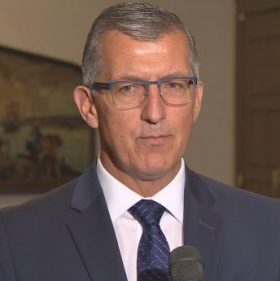 The Progressive Conservatives are calling an Atlantic fisheries fund that will direct $100-million to Newfoundland and Labrador a sellout. “It’s the biggest sellout in the history of the fishery,” said Opposition Leader Paul Davis who went on the attack in question period in the House of Assembly Tuesday. “This is nothing but a sellout to the federal government.” Davis complained that, in the fund announced Friday, the province settled for a fraction of what was contemplated under a trade agreement between Canada and Europe [CETA]. That $400-million dollar fund would have included $280 million from Ottawa, with the rest coming from the province. The money was demanded by the province as the CETA took shape in 2013 to compensate for giving up minimum processing requirements. read the story here 20:00
The Progressive Conservatives are calling an Atlantic fisheries fund that will direct $100-million to Newfoundland and Labrador a sellout. “It’s the biggest sellout in the history of the fishery,” said Opposition Leader Paul Davis who went on the attack in question period in the House of Assembly Tuesday. “This is nothing but a sellout to the federal government.” Davis complained that, in the fund announced Friday, the province settled for a fraction of what was contemplated under a trade agreement between Canada and Europe [CETA]. That $400-million dollar fund would have included $280 million from Ottawa, with the rest coming from the province. The money was demanded by the province as the CETA took shape in 2013 to compensate for giving up minimum processing requirements. read the story here 20:00
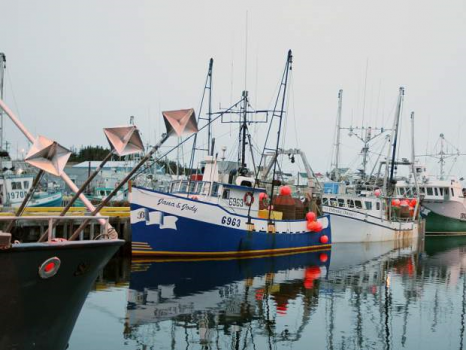
Fund compensating Newfoundland seafood industry could resolve one of the final obstacles to CETA deal
With the United States poised to adopt a more protectionist trade policy under President-Elect Donald Trump, some good news for supporters of Canada’s major trade deal with the European Union could come this week. A decision is expected soon on compensation for businesses in Newfoundland and Labrador that would lose out due to provisions in the recently-signed Comprehensive Economic and Trade Agreement (CETA) — one of the last potential causes of a hold-up on the Canadian side of the deal. A Liberal source said Prime Minister Justin Trudeau has been discussing a special fisheries fund with Premier Dwight Ball and an announcement could come as soon as later this week. Read the rest here 19:31

CETA is OVER: Belgian PM kills trade deal in devastating blow to EU
Charles Michel said after a meeting with regional leaders: “I have officially told Tusk that we have no agreement.” The EU had given Belgium until Monday to overcome opposition to the CETA trade deal from its French-speaking south before it would likely have to cancel a Thursday summit with Canadian Prime Minister Justin Trudeau to sign the pact. Mr Michel said he was still open to dialogue with the main holdout, the region of Wallonia, and that it was too early to say whether CETA was dead.EU and Canadian leaders have said they are keen to conclude the deal after years of negotiation. Mr Michel could not provide the consent of Belgium to that of the other 27 EU member states without backing from five regional authorities. Read the rest here 11:11
FFAW president hopes Canada-EU trade talks aren’t finished
 The head of Newfoundland and Labrador’s largest private-sector union said he’s disappointed that Canada-EU trade talks have fallen apart. “It’s preliminary, but it doesn’t certainly look good for (the Comprehensive Economic and Trade Agreement) in its current form right now,” Keith Sullivan, president of the Fish, Food and Allied Workers union told CBC on Friday. International Trade Minister Chrystia Freeland walked out of talks Friday with the regional government of Wallonia, which has been blocking the deal, due to be signed next week. Sullivan told CBC the deal as it stood was a “mixed bag” for Canadian workers, but he thought there was potential benefit for the fishing industry. “There was certainly an area where people saw some opportunities where they could get decreased tariffs on some products like shrimp and crab, and that was an opportunity for some people,” he said. “So it was certainly mixed, but it might be all for nothing now.” Read the rest here 12:09
The head of Newfoundland and Labrador’s largest private-sector union said he’s disappointed that Canada-EU trade talks have fallen apart. “It’s preliminary, but it doesn’t certainly look good for (the Comprehensive Economic and Trade Agreement) in its current form right now,” Keith Sullivan, president of the Fish, Food and Allied Workers union told CBC on Friday. International Trade Minister Chrystia Freeland walked out of talks Friday with the regional government of Wallonia, which has been blocking the deal, due to be signed next week. Sullivan told CBC the deal as it stood was a “mixed bag” for Canadian workers, but he thought there was potential benefit for the fishing industry. “There was certainly an area where people saw some opportunities where they could get decreased tariffs on some products like shrimp and crab, and that was an opportunity for some people,” he said. “So it was certainly mixed, but it might be all for nothing now.” Read the rest here 12:09
CETA on life support because of Brexit
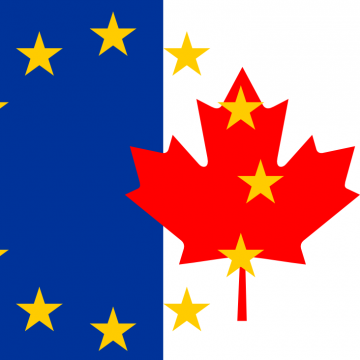 The Brexit vote has left Europe in a mess – and dealt a serious blow to Canada’s trade prospects. (CETA, Canadian fishery issues, click here) The British pound is dropping, world markets are scrambling and most are wondering how the political establishment will address what appears to be a constitutional vacuum related to exiting member-states of the European Union. It speaks to how ill-prepared the union was to such an eventuality. Yet the biggest casualty of Brexit will likely be global trading. And Canada may pay a huge price, since our Comprehensive Economic and Trade Agreement (CETA) with the EU is still under negotiation and won’t be ratified any time soon. And with so much uncertainty in agricultural policies particularly, CETA is undoubtedly on life support, at best. CETA emphasizes Canada’s relationship with the EU and was Canada’s greatest chance to become a significant portal between both continents. The United Kingdom is one of our top food trading partners within the EU and there was great potential to further increase trade in certain commodities. Read the rest here 13:55
The Brexit vote has left Europe in a mess – and dealt a serious blow to Canada’s trade prospects. (CETA, Canadian fishery issues, click here) The British pound is dropping, world markets are scrambling and most are wondering how the political establishment will address what appears to be a constitutional vacuum related to exiting member-states of the European Union. It speaks to how ill-prepared the union was to such an eventuality. Yet the biggest casualty of Brexit will likely be global trading. And Canada may pay a huge price, since our Comprehensive Economic and Trade Agreement (CETA) with the EU is still under negotiation and won’t be ratified any time soon. And with so much uncertainty in agricultural policies particularly, CETA is undoubtedly on life support, at best. CETA emphasizes Canada’s relationship with the EU and was Canada’s greatest chance to become a significant portal between both continents. The United Kingdom is one of our top food trading partners within the EU and there was great potential to further increase trade in certain commodities. Read the rest here 13:55
CETA breakthrough revives discussion over contentious fisheries renewal fund
 Newfoundland and Labrador’s representative in the federal cabinet says talks are underway about how the province might be compensated for losses incurred once a Canada-European Union trade deal is implemented. Public Services and Procurement Minister Judy Foote was in St. John’s Monday to speak to a business audience, but fisheries issues garnered most of the attention when she met later with reporters. The federal government announced Monday that a legal review of the English text of the Canada-European Union Comprehensive Economic and Trade Agreement (CETA) is now complete. Read the rest here 08:43
Newfoundland and Labrador’s representative in the federal cabinet says talks are underway about how the province might be compensated for losses incurred once a Canada-European Union trade deal is implemented. Public Services and Procurement Minister Judy Foote was in St. John’s Monday to speak to a business audience, but fisheries issues garnered most of the attention when she met later with reporters. The federal government announced Monday that a legal review of the English text of the Canada-European Union Comprehensive Economic and Trade Agreement (CETA) is now complete. Read the rest here 08:43
CETA negotiations suspended over fisheries fund, N.L. says
![]() Newfoundland and Labrador is and all trade agreements currently being negotiated with the federal government. Newfoundland and Labrador says the federal government is not honouring a prior commitment to set up the fund, which it says will be needed to help the seafood industry when a trade deal with the European Union is approved. Read the rest here 12:18
Newfoundland and Labrador is and all trade agreements currently being negotiated with the federal government. Newfoundland and Labrador says the federal government is not honouring a prior commitment to set up the fund, which it says will be needed to help the seafood industry when a trade deal with the European Union is approved. Read the rest here 12:18
“Snappy Dresser” Peter MacKay says $280M CETA fisheries fund never meant to be ‘slush fund’
Ottawa and the provincial government have been at odds over the interpretation of the $280-million fisheries fund for  , with the province claiming the federal government has put new stipulations on the deal. Read the rest here 20:25
, with the province claiming the federal government has put new stipulations on the deal. Read the rest here 20:25






